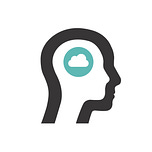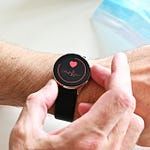Mindful awareness is so simple that a child can do it, but it’s challenging for adults because we often take awareness for granted.
Without parents and caregivers, infants would be overwhelmed by their senses as they struggle to understand everything. Toddlers are captivated by their senses and eagerly explore the world around them. They want to learn the names of everything they see, understand why things are the way they are, and, when something makes them happy, experience it again. Childhood provides a steady stream of opportunities for children to learn through direct experience, improving their ability to predict future situations and outcomes.
When I ask my four-year-old grandson to listen for a distant sound, he’s eager to scan his surroundings for sounds. When I invite adults to listen to sounds around them, they usually want proof that doing so could lower blood pressure, boost productivity, or relieve stress. We assume that making sense is the ultimate developmental stage and don’t even realize that we’ve weakened our ability to sense things directly without needing a logical reason.
But at some point, probably during adolescence, we unintentionally develop many strategies to increase pleasure and certainty while avoiding discomfort and uncertainty. It’s a logical approach that’s bound to fail, and we forget to prepare for the inevitable times when it will.
Mindfulness practice explores an additional developmental stage: making sense when we can, while also letting moments unfold without controlling or predicting what comes next. We do this by sometimes prioritizing direct awareness of sensations and perceptions over making sense of them. It takes a while, though, for adults to learn how to perform exercises that come naturally to children.
Dr. Jud Brewer conducted research at Yale years ago that illustrates this challenge and may help clarify what goes on in the unobservable subjective awareness of someone engaged in a mindfulness exercise.1
Subjects were taught a breath-awareness exercise and expressed their understanding of the technique for focusing on breathing sensations. They were then connected to an fMRI machine that provided real-time feedback on their brain activity as they practiced it. Instead of assuming they were doing the exercise correctly, they received tangible evidence immediately. This would be like the difference between feeling that your freestyle stroke is efficient versus watching underwater footage of yourself swimming with an experienced coach pointing out misinterpretations and blind spots.
The fMRI data showed when the brain’s default mode network was active (making sense or thinking about the breath) and when the brain was processing data from tracking a specific sensation (sensing the body breathing).2
With immediate feedback, subjects noticed the difference. “Oh, I was thinking about my breath, but you’re asking me to feel it — literally. Let me try again.” Subsequent attempts confirmed the revised understanding. The only remaining step was to practice the exercise regularly to experience the results firsthand.
The technology is too costly to be practical, but knowing what is being tracked and the different attention modes involved can help you better understand and perform attention exercises.
The exercise below gives you a chance to explore this for yourself. Instead of just thinking about different parts of your body, try to actually feel them for a few seconds at a time.
Just like swimming, running, or lifting weights, the goal is to develop habits that accumulate repetitions of various exercises to build greater abilities. Whether we exercise regularly or not, most of us know where physical activity can lead. Few realize that consistently exercising your attention can help you savor pleasant moments more and lessen the impact of the inevitable unpleasant ones, making your overall well-being less dependent on circumstances you can’t always control.
Exercise
This exercise focuses on bodily sensations to sharpen perceptual clarity and strengthen equanimity.
Circumstances for learning this attention exercise
waking up
waiting
unwinding
Listen to this episode with a 7-day free trial
Subscribe to Phenomenal Awareness to listen to this post and get 7 days of free access to the full post archives.












